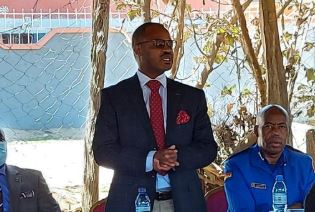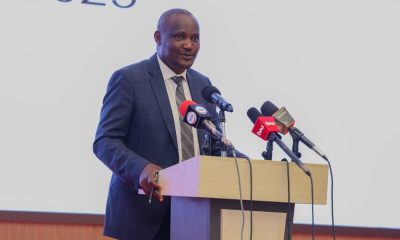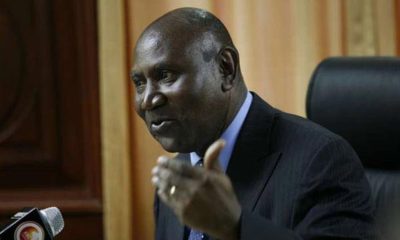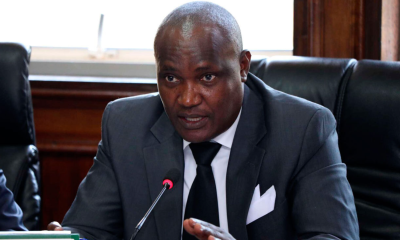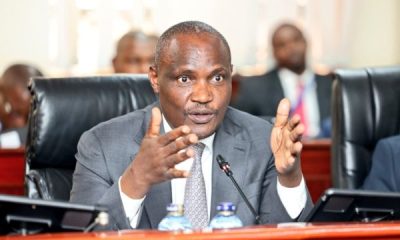Economy
Cash Crunch May Force University Shutdowns, Staff Layoffs – Mbadi
Some universities are owed over Ksh 4 billion, money that was spent educating students for free since 2016, with Mbadi admitting there is little prospect of the government clearing this mounting debt.
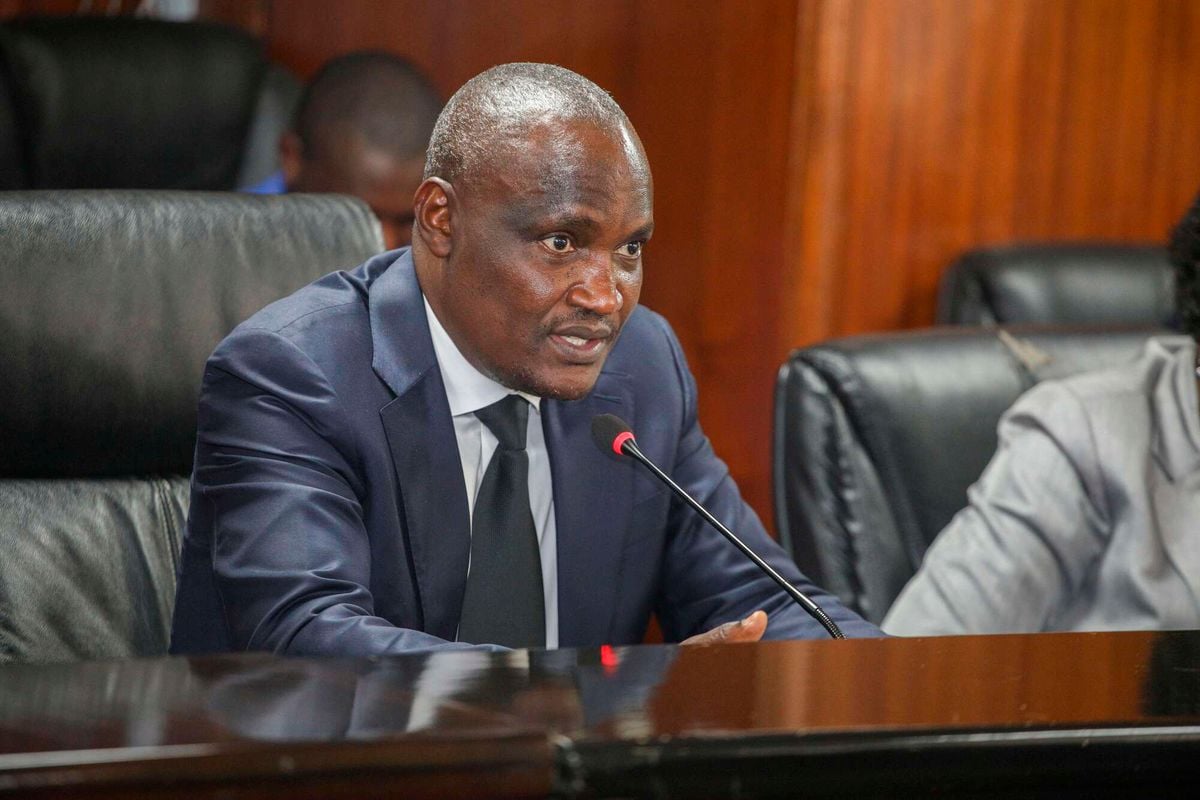
Treasury CS warns of unprecedented overhaul as public universities face mounting debts exceeding Ksh 4 billion
Kenya’s public university system stands at the precipice of collapse as Treasury Cabinet Secretary John Mbadi delivered a stark warning that could reshape higher education forever.
In an unprecedented admission of financial defeat, Mbadi announced sweeping reforms that will see mass layoffs, campus closures, and the effective end of free university education across the country.
The Treasury chief’s blunt assessment cut through years of political rhetoric as he declared that the government can no longer sustain its promise of free higher education. “For a long time, we have been living a lie in the sense that we give our children to the universities to educate for free without funding,” Mbadi said, his words carrying the weight of a system pushed beyond its breaking point.
Behind these stark pronouncements lies a financial crisis of staggering proportions. Some universities are owed over Ksh 4 billion, money that was spent educating students for free since 2016, with Mbadi admitting there is little prospect of the government clearing this mounting debt. The numbers paint a picture of institutions gasping for breath under the weight of promises the state cannot keep.
The proposed solution reads like a manual for institutional downsizing. Universities will be forced to undergo what Mbadi euphemistically termed “staff right-sizing,” while satellite campuses face closure and disposal to offset the crushing financial obligations. Non-core services will be outsourced, and administrative structures will be gutted in pursuit of what officials call financial sustainability.
“The Ministry of Education, in collaboration with universities, is expected to develop a comprehensive reform strategy that will ensure financial sustainability within public universities,” Mbadi explained, though his clinical language cannot mask the human cost of these sweeping changes. Entire campuses that once buzzed with academic activity may soon stand empty, their assets sold to pay off debts accumulated through years of unfunded mandates.
The crisis has been years in the making, transforming Kenya’s once-prestigious public universities from engines of intellectual growth into what stakeholders now describe as shells of their former glory. These institutions, which once stood as beacons of opportunity for students from all backgrounds, now find themselves caught between unpaid salaries, ballooning debts, and the impossible task of educating large student populations without adequate resources.
Into this chaos, the government is pushing forward with a controversial new funding model that shifts the financial burden directly onto parents and students. Despite fierce resistance from various quarters, Mbadi defended this approach as the only viable path forward. “This new model that was being resisted so furiously needs to be supported to succeed,” he insisted, arguing that university administrators themselves acknowledge its necessity.
The Cabinet Secretary’s message was uncompromising in its finality. “Let us not cheat ourselves as a country that we can finance fully and make university education free,” he declared, effectively drawing a line under decades of policy that treated higher education as a public good accessible to all qualified students regardless of their economic background.
This shift has sparked fierce criticism from education stakeholders who view the reforms as a fundamental abandonment of the government’s constitutional obligations. Critics argue that the new funding model will create insurmountable barriers for thousands of brilliant students from poor families, potentially reversing decades of progress in educational equity and social mobility.
The announcement has sent shockwaves through university communities across the country, where staff members now face an uncertain future. The proposed restructuring represents one of the most significant employment challenges in Kenya’s education sector, with academic and non-academic staff alike wondering whether their positions will survive the coming purge.
As Kenya’s public universities brace for this fundamental transformation, the broader implications extend far beyond campus boundaries. The government’s admission that it cannot sustain current funding levels marks a watershed moment that could redefine educational opportunity for generations of Kenyan students. What emerges from this crisis will determine not only the survival of the public university system but also the country’s capacity to develop the human capital necessary for economic growth and social progress.
The path ahead remains uncertain, but one thing is clear: the era of free public university education in Kenya is drawing to a close, replaced by a model that places the burden of higher learning squarely on the shoulders of students and their families. Whether this transition will strengthen or weaken Kenya’s educational foundation remains to be seen, but the stakes could not be higher for a nation whose future depends on the knowledge and skills of its people.
Kenya Insights allows guest blogging, if you want to be published on Kenya’s most authoritative and accurate blog, have an expose, news TIPS, story angles, human interest stories, drop us an email on [email protected] or via Telegram
-

 Grapevine1 week ago
Grapevine1 week agoAlleged Male Lover Claims His Life Is in Danger, Leaks Screenshots and Private Videos Linking SportPesa CEO Ronald Karauri
-

 Lifestyle2 weeks ago
Lifestyle2 weeks agoThe General’s Fall: From Barracks To Bankruptcy As Illness Ravages Karangi’s Memory And Empire
-

 Grapevine5 days ago
Grapevine5 days agoRussian Man’s Secret Sex Recordings Ignite Fury as Questions Mount Over Consent and Easy Pick-Ups in Nairobi
-

 Investigations2 weeks ago
Investigations2 weeks agoEpstein Files: Sultan bin Sulayem Bragged on His Closeness to President Uhuru Then His Firm DP World Controversially Won Port Construction in Kenya, Tanzania
-

 Investigations2 days ago
Investigations2 days agoMulti-Million Dollar Fraud: Three Kenyans Face US Extradition in Massive Cybercrime Conspiracy
-

 Investigations2 weeks ago
Investigations2 weeks agoEpstein’s Girlfriend Ghislaine Maxwell Frequently Visited Kenya As Files Reveal Local Secret Links With The Underage Sex Trafficking Ring
-

 News2 weeks ago
News2 weeks agoState Agency Exposes Five Top Names Linked To Poor Building Approvals In Nairobi, Recommends Dismissal After City Hall Probe
-

 Business1 week ago
Business1 week agoM-Gas Pursues Carbon Credit Billions as Koko Networks Wreckage Exposes Market’s Dark Underbelly



